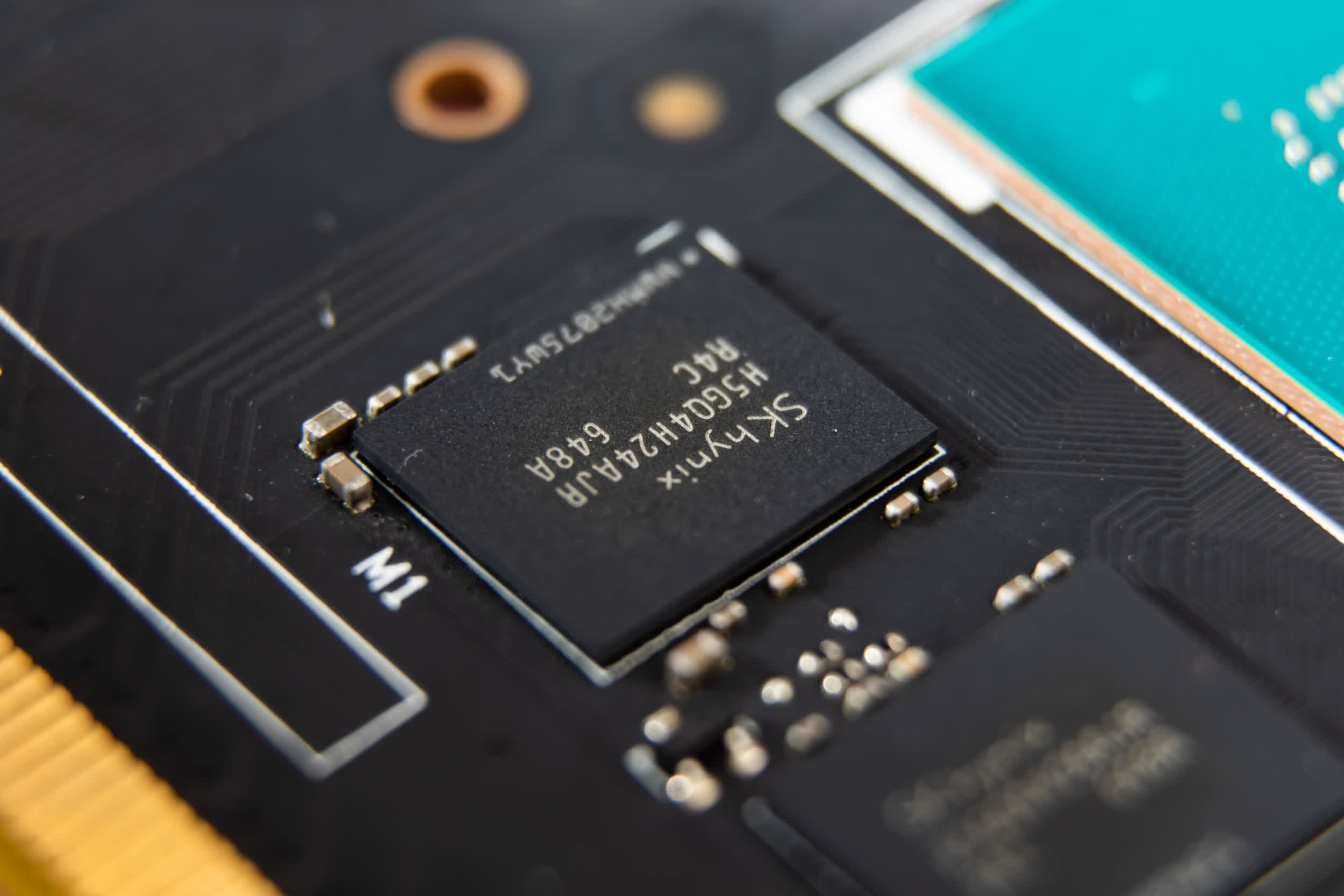In a nutshell: SK Hynix is the latest tech giant to sound warning bells about the faltering economy as the possibility of a global recession looms. The world’s largest supplier of DRAM and flash memory chips said memory growth is waning as its inventory continues to grow. Once again, the slowdown in demand for electronic goods following the lockdown boom is cited as a significant factor.
Bloomberg writes that SK Hynix recorded a 56% increase in second-quarter profit yesterday, beating analysts’ estimates. But there was bad news alongside the healthy financial report. Company executives said demand from its major growth areas of PCs, smartphones, and servers was slowing.
Industry analyst IDC earlier this month reported that PC shipments fell in Q2 for the second straight quarter, by 15.3% year-on-year. Smartphone shipments are experiencing a similar decline this year. As such, SK Hynix Chief Marketing Officer Kevin Noh says shipment growth forecasts for the current quarter will be lowered. “Market growth for the year is going to be a lot lower than our expectations earlier in the year,” he said.
While oversupply isn’t what the industry wants to see, consumers often benefit from these situations. Market analysis firm TrendForce reports that prices for consumer solid-state drives are expected to fall between 3-8% during the third quarter due to NAND oversupply.
The global economic uncertainty is impacting virtually every technology company as firms slow down hiring, tighten their belts, and, in some cases, reduce their workforce. Facebook recently started to crack down on low- and average-performing staff, while Google, Microsoft, Seagate, Snap, Twitter, Tesla, Corsair, and many others are feeling the heat.
There are some positives in the long-term outlook, though. SK Group Chairman Chey Tae-won has told President Joe Biden the group would invest $15 billion to build an advanced packaging and testing facility and support research programs in the US. This comes a week after the Senate advanced the CHIPS the bill to the next stage. The act will provide $52 billion in funding for the domestic semiconductor industry.
Not all firms are forecasting doom and gloom. The world’s biggest chip manufacturer, TSMC, has raised its forecast for revenue growth this year, indicating that demand for electronic goods in some sectors remains strong.
Masthead credit: KenSoftTH














/cdn.vox-cdn.com/uploads/chorus_asset/file/25784221/247333_EOY_Package_Check_In_CVirginia_PRIME.jpg)






Discussion about this post